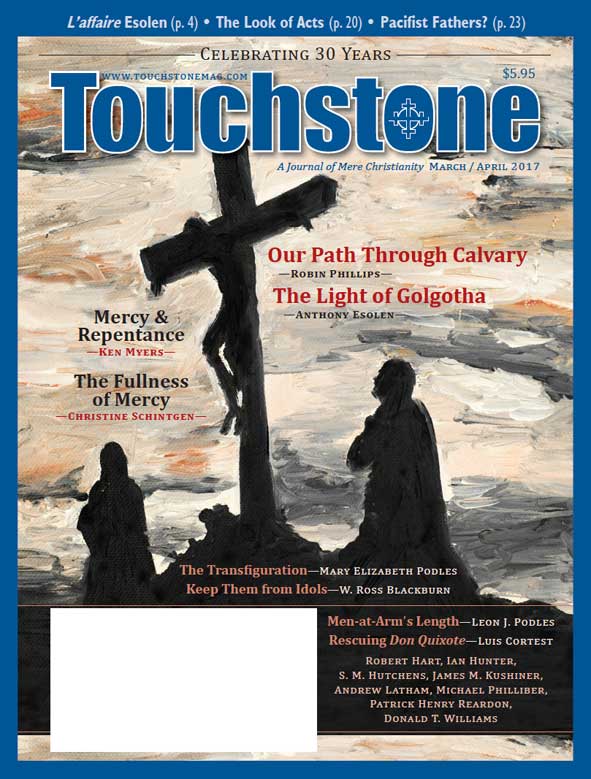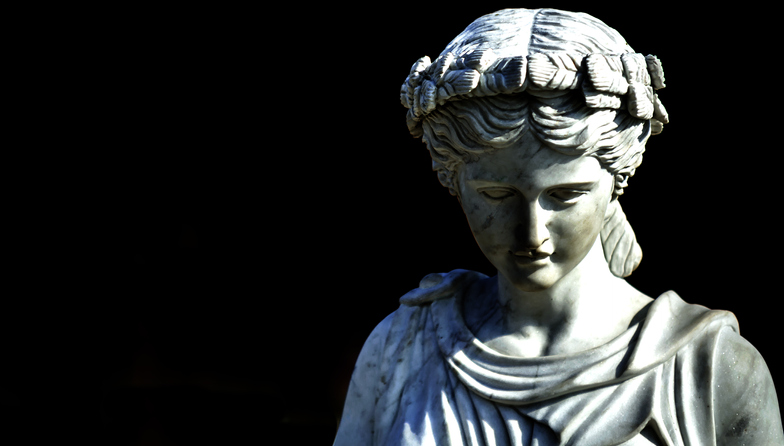View
Rescuing Cervantes
Luis Cortest on Reading Don Quixote in Its Original Christian Context
April 2016 marked the 400-year anniversary of the death of Miguel de Cervantes Saavedra, the best-known author in the history of Spanish-language literature. Although he wrote many other impressive works, including the remarkable Novelas Ejemplares, the work by which we remember him is Don Quixote. This masterpiece, published in two parts (Part I, 1605; Part II, 1615), belongs to that exclusive class of works that we call the classics of world literature. There can be no doubt that Don Quixote amply deserves its exalted reputation. Yet it is odd that such a celebrated book is now so seldom read in its entirety, not just in translation, but even by students and admirers who read it in the original Spanish. This has helped contribute to the fact that the book is persistently misread and misunderstood by modern readers.
Few works have inspired more exaggerated claims. In his 2015 book, Quixote: The Novel and the World, Ilan Stavans openly confesses his obsession with the novel, lauding it as "the banner, the pledge of allegiance, the constitution of Hispanic civilization, including the portion—the nation within the nation—living north of the Rio Grande" (171). No such extravagant claim has been made about any other work of literature in the Spanish language.
Early Modern Disenchantment?
Not to be outdone, William Egginton, in his impressive new book, The Man Who Invented Fiction, informs us that Cervantes not only "invented fiction" but actually "ushered in the modern world." He was able to achieve this remarkable feat because he lived at the very moment in history when fiction "contravened the state's control over imaginative expressions of individual subjectivity" (171). According to this analysis, Cervantes was seeking to subvert sources of religious and political authority in his society that he had once embraced, but then no longer accepted. But he was doing so with subtlety and indirectness, using fiction to veil his true thoughts:
Presented with the challenge of portraying the world according to the dictates of a society whose version of the truth he had once accepted but now knew to be false, Cervantes developed a brilliant solution. He would present in perfect verisimilitude conflicting portrayals of the world and the attempt of individuals to choose between them. In this way he could undermine the state's version of reality while claiming with complete deniability that he was teaching by example.
(171)
Egginton is absolutely convinced that by the time that Cervantes composed Don Quixote he had lost all faith in the values he had so boldly accepted at an earlier time:
As a young man, Cervantes bought into the religious and political doctrines of his day. He dueled for honor, risked his life for his country, spent long years in captivity, and returned fueled with hope for a comfortable and honorable old age. These hopes were dashed as he found that, in the eyes of his society and his government, he was not much more than an aging cripple whom they would rather be rid of than reward. His early attempts at prose and theater showed sparks of literary genius and critical wit, but it was only as his life progressed and his hopes and plans turned to naught that the real genius we now recognize came alive, that Cervantes became, as it were, Cervantes. (183)
In other words, Cervantes' fiction was a classic expression of early-modern disenchantment and disillusionment at the dawn of the Age of Reason.
A Deeply Religious Man
But such a bold claim glides too easily past some stubborn facts. It was not until the end of his difficult life that Cervantes began to become famous for his work—and at that time he was living the life of a very devout and entirely orthodox Catholic. In Egginton's own words:
Luis Cortest is Professor of Spanish at the University of Oklahoma. He has published several books, including The Disfigured Face: Traditional Natural Law and Its Encounter with Modernity (Fordham University Press, 2008).
subscription options
Order
Print/Online Subscription
Get six issues (one year) of Touchstone PLUS full online access including pdf downloads for only $39.95. That's only $3.34 per month!
Order
Online Only
Subscription
Get a one-year full-access subscription to the Touchstone online archives for only $19.95. That's only $1.66 per month!
bulk subscriptions
Order Touchstone subscriptions in bulk and save $10 per sub! Each subscription includes 6 issues of Touchstone plus full online access to touchstonemag.com—including archives, videos, and pdf downloads of recent issues for only $29.95 each! Great for churches or study groups.
Transactions will be processed on a secure server.
more on literature from the online archives
more from the online archives
calling all readers
Please Donate
"There are magazines worth reading but few worth saving . . . Touchstone is just such a magazine."
—Alice von Hildebrand"Here we do not concede one square millimeter of territory to falsehood, folly, contemporary sentimentality, or fashion. We speak the truth, and let God be our judge. . . . Touchstone is the one committedly Christian conservative journal."
Support Touchstone
—Anthony Esolen, Touchstone senior editor












